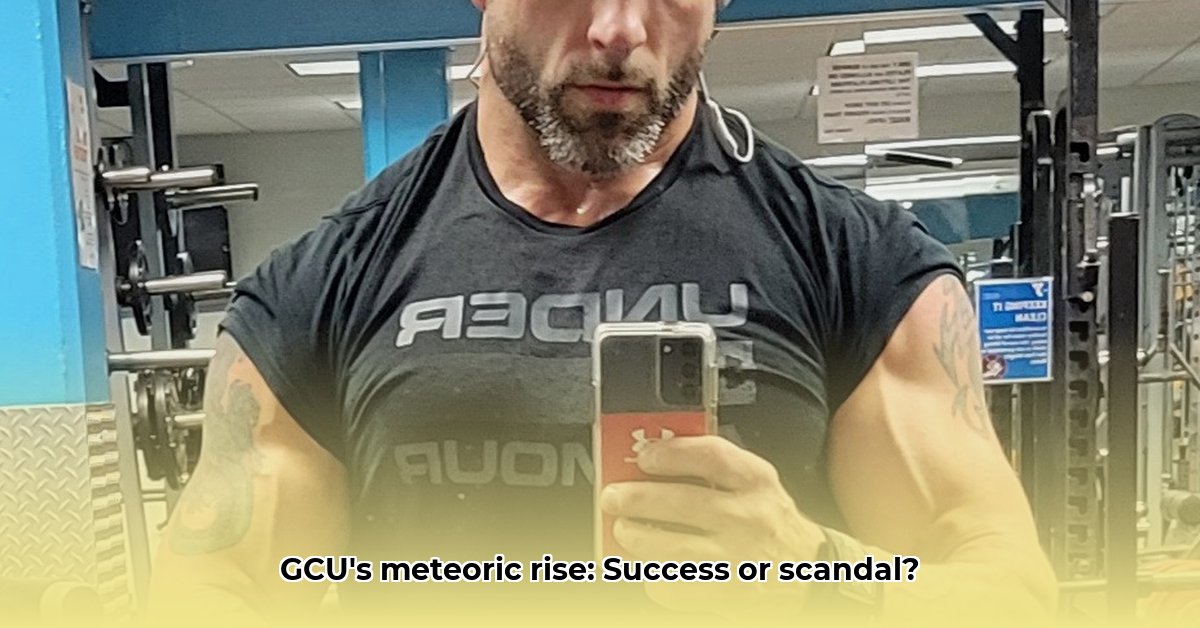Brian Mueller’s leadership as president of Grand Canyon University (GCU) is a multifaceted story of unprecedented growth, innovative strategies, and significant controversy. He spearheaded GCU’s evolution from a small regional university into a prominent institution, a journey marked by impressive expansion and ethical scrutiny. Understanding his impact requires examining both the achievements and the challenges that have defined his tenure.
Meteoric Rise: GCU’s Transformation Under Mueller
Under Mueller’s guidance, GCU experienced remarkable growth across multiple fronts. Student enrollment soared from approximately 1,000 ground students in 2008 to over 20,000 by 2018, with online enrollment exceeding 70,000. This expansion was accompanied by significant investments in new infrastructure, including state-of-the-art academic buildings, residence halls, and athletic facilities. GCU’s athletic programs also gained national recognition, transitioning to NCAA Division I status and achieving success in various sports. Mueller’s vision extended beyond the physical campus, as he focused on expanding GCU’s online programs to reach a wider audience and provide flexible learning opportunities.
However, the rapid growth and transformation of GCU under Mueller’s leadership have also drawn scrutiny and controversy. The Federal Trade Commission (FTC) filed a lawsuit against GCU, Grand Canyon Education (GCE), and Mueller himself, alleging deceptive marketing practices related to the cost and course requirements of its doctoral programs. The FTC also accused GCU of misrepresenting its nonprofit status and engaging in deceptive telemarketing practices. These allegations raise concerns about transparency and ethical conduct in GCU’s recruitment and marketing efforts.
Furthermore, GCU has faced legal challenges stemming from its shifts between athletic conferences, including disputes with the West Coast Conference (WCC) over entry and withdrawal fees. GCU’s decision to join the Mountain West Conference instead of the WCC led to litigation, adding another layer of complexity to the university’s narrative. These controversies highlight the challenges and potential pitfalls of rapid growth and strategic decision-making in higher education.
Despite the controversies, GCU has also invested heavily in revitalizing the surrounding neighborhood, demonstrating a commitment to community engagement and urban development. The university’s presence has spurred economic growth, created jobs, and improved the quality of life for residents in the west Phoenix area.
Ethical Considerations: Balancing Growth and Values
GCU’s transformation under Mueller raises important questions about the ethical considerations of rapid growth and expansion in higher education. Did the pursuit of enrollment targets and revenue generation potentially compromise the university’s core values and commitment to student success? How were competing priorities, such as affordability, quality, and ethical marketing practices, balanced within the university’s culture and decision-making processes?
GCU’s emphasis on student support and its faith-based mission created a distinctive environment that attracted many students seeking a values-driven education. However, questions have been raised about whether the university’s focus on attracting high-achieving students and improving average incoming GPAs may have inadvertently created barriers for other students. Ensuring equitable access and support for students from diverse backgrounds and academic profiles is essential for maintaining a commitment to inclusivity and social mobility.
Moreover, GCU’s tuition freeze, a defining feature of Mueller’s tenure, presented a compelling narrative of affordability and accessibility. While the tuition freeze made GCU more attractive to prospective students, it also raised questions about the university’s long-term financial sustainability. How could GCU maintain its academic quality, invest in new programs and facilities, and provide adequate student support services while keeping tuition rates frozen for an extended period? Balancing affordability with financial stability is a critical challenge for all institutions of higher education.
“Grand Canyon University is committed to providing a high-quality, affordable education that prepares students for success in their chosen careers,” said [Dr. Lawrence сердюк], [Dean of the College of Doctoral Studies]. “We continuously evaluate our programs and practices to ensure that we are meeting the needs of our students and upholding the highest ethical standards.”
Specific ethical dilemmas that GCU faced under Mueller’s leadership include:
- Academic integrity: Maintaining academic rigor and preventing grade inflation amid rapid enrollment growth and increasing reliance on online education.
- Fair treatment of students and faculty: Ensuring equitable treatment of all students and faculty members during periods of rapid change, including providing adequate resources and support for online students and protecting the rights of faculty members in the face of budget cuts or program restructuring.
- Transparency and disclosure: Providing clear and accurate information to prospective students about the true cost of attendance, program requirements, and potential career outcomes.
Mueller’s Strategies: Affordability, Innovation, and Industry Partnerships
GCU’s success under Mueller’s leadership can be attributed to several key strategies:
- Tuition freeze: GCU’s tuition freeze attracted significant student interest, fueling enrollment growth and positioning the university as an affordable option in a competitive higher education market.
- Online learning: GCU embraced online learning early on, a strategy that proved crucial to its expansion and ability to reach a diverse student population. The flexibility of online programs appealed to non-traditional students, working adults, and students from geographically dispersed locations.
- Industry partnerships: Mueller prioritized building strong relationships with employers and industry partners, providing students with valuable internship opportunities, practical experience, and career networking connections. These partnerships enhanced students’ career prospects and ensured that GCU’s programs aligned with industry needs.
However, GCU’s growth has also been accompanied by regulatory challenges and legal disputes, raising concerns about ethical considerations and the potential tradeoffs between aggressive growth and responsible operation. Balancing innovation with compliance and ethical conduct is a critical challenge for higher education leaders.
Despite the legal battles and controversies, GCU’s model blends affordability, flexibility, and career focus, offering a compelling value proposition for students seeking a practical and accessible education.
Lessons for Higher Education: Balancing Innovation and Sustainability
GCU’s transformation under Mueller’s leadership offers several key lessons for higher education institutions:
- Financial sustainability: The importance of developing a sustainable financial model that balances affordability with the need to invest in academic quality, student support services, and infrastructure improvements.
- Regulatory compliance: The need to navigate the complex higher education regulatory landscape and ensure compliance with all applicable laws and regulations.
- Ethical leadership: The importance of ethical leadership and a commitment to transparency, accountability, and responsible conduct in all aspects of university operations.
Mueller’s approach has sparked debate regarding educational ethics and regulatory compliance, with some critics questioning whether GCU’s success came at the expense of student welfare and ethical conduct. As Brian Mueller’s tenure at GCU reshaped higher education, it’s essential to analyze the long-term implications of his strategies and the lessons that can be learned from GCU’s experience.
The full impact of Mueller’s leadership and the transformation of GCU are likely years away from full understanding. However, his legacy as a transformative figure in higher education is undeniable, and his strategies and decisions will continue to be debated and analyzed for years to come.
- How to Produce Electricity at Home for Energy Independence - January 29, 2026
- How To Create Electricity At Home For Energy Independence - January 28, 2026
- How to Make Electricity at Home Using Renewable Energy Sources - January 27, 2026
















